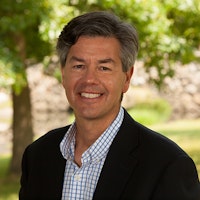The universal patterns and principles the cosmos uses to build stable, healthy, and sustainable systems throughout the real world can and must be used as a model for economic-system design.
The universal patterns and principles the cosmos uses to build stable, healthy, and sustainable systems throughout the real world can and must be used as a model for economic-system design.
John B. Fullerton

Regenerative Capitalism
Topic: Society & Civil Religion
Our Regenerative story starts with a single core idea: The universal patterns and principles the cosmos uses to build stable, healthy, and sustainable systems throughout the real world can and must be used as a model for economic-system design.
John B. Fullerton was born on May 20, 1964, in Syracuse, New York, and spent his formative years in this vibrant city. He demonstrated an early interest in economics and finance, which led him to pursue undergraduate studies at the University of Michigan College of Literature, Science, and the Arts. Following his graduation, Fullerton furthered his education at the NYU Stern School of Business, where he obtained an MBA. His academic background provided a strong foundation for his subsequent roles in the financial sector, including a significant tenure as a managing director at J.P. Morgan. John Fullerton is married to Claire Fullerton, and they have two children. The family has been an integral part of his journey, both personally and professionally.
John Fullerton has been a proponent of shifting economic paradigms towards more sustainable and equitable systems throughout his career. His thought leadership is heavily influenced by the Wisdom Traditions and a regenerative understanding of the principles of Nature, advocating for economic practices rooted in truth and sustainable value. Fullerton critiques current economic models that emphasize short-term growth and efficiency, suggesting instead an "economics of permanence" that prioritizes long-term stability and durability. His ideas challenge conventional practices and encourage a reassessment of economic goals to align more closely with the principles of sustainability and justice.
In his writings and speeches, John Fullerton calls for integrating traditional wisdom into contemporary economic practices to achieve a more balanced approach to human and ecological well-being. This vision for economic reform is not just about revising old concepts for modern applications but fundamentally rethinking economic objectives to focus on truth and long-term sustainability. Through his work, Fullerton not only questions existing frameworks but also inspires discussions on how to reshape economic strategies to support a just and sustainable future for all. His efforts highlight the importance of basing our economic systems on values that promote enduring well-being and fairness.
Regenerative Capitalism
Fullerton, John. “The Regenerative Framework & White Paper.” Capital Institute, capitalinstitute.org/regenerative-capitalism/, [John Fullerton, Regenerative Capitalism, Capital Institute].

John B. Fullerton
Theme: Regenerative Economics

About This John Fullerton Quote & Regenerative Framework [Commentary]
John Fullerton advocates for an economic system that reflects the stable, healthy, and sustainable principles observed in natural systems. He asserts that these universal principles and patterns should guide our economic design to foster systemic health over mere growth. Fullerton envisions the economy as an interconnected web, emphasizing that the well-being of each part enhances the whole and supports long-term sustainability.
In his framework, Fullerton outlines eight essential principles for a viable economic system. These include fostering right relationships, recognizing holistic forms of wealth, encouraging innovation, and ensuring robust circulatory flows. This comprehensive approach posits that economic activities should enrich the well-being of all stakeholders, linking human and ecological communities in a sustainable partnership that challenges conventional economic models.
By aligning economic systems with the universal principles and laws of nature, John Fullerton calls for a transformative shift in economic management. His vision promotes resilience, adaptability, and balance—qualities essential for navigating modern economic complexities. Fullerton’s approach moves beyond sustainability, aiming for an integrated economy that harmonizes ethical, ecological, and social values to cultivate a truly flourishing society.
John B. Fullerton, Towards A Regenerative Economy [Excerpt]
We then distill our research into eight key, interconnected principles that underlie systemic health:
1. In Right Relationship*—Humanity is an integral part of an interconnected web of life in which there is no real separation between “us” and “it.” The scale of the human economy matters in relation to the biosphere in which it is embedded. What is more, we are all connected to one another and to all locales of our global civilization. Damage to any part of that web ripples back to harm every other part as well. [*Brown, P. and Garver, G. 2008. In Right Relationship, Building a Whole Earth Economy. San Francisco: Berrett-Koehler Publishers.]
2. Views Wealth Holistically—True wealth is not merely money in the bank. It must be defined and managed in terms of the well-being of the whole, achieved through the harmonization of multiple kinds of wealth or capital, including social, cultural, living, and experiential. It must also be defined by a broadly shared prosperity across all of these varied forms of capital. The whole is only as strong as the weakest link.
3. Innovative, Adaptive, Responsive—In a world in which change is both ever-present and accelerating, the qualities of innovation and adaptability are critical to health. It is this idea that Charles Darwin intended to convey in this often-misconstrued statement attributed to him: “In the struggle for survival, the fittest win out at the expense of their rivals.” What Darwin actually meant is that: the most “fit” is the one that fits best i.e., the one that is most adaptable to a changing environment.
4. Empowered Participation—In an interdependent system, fitness comes from contributing in some way to the health of the whole. The quality of empowered participation means that all parts must be “in relationship” with the larger whole in ways that not only empower them to negotiate for their own needs, but also enable them to add their unique contribution towards the health and well-being of the larger wholes in which they are embedded.
5. Honors Community and Place—Each human community consists of a mosaic of peoples, traditions, beliefs, and institutions uniquely shaped by long-term pressures of geography, human history, culture, local environment, and changing human needs. Honoring this fact, a Regenerative Economy nurtures healthy and resilient communities and regions, each one uniquely informed by the essence of its individual history and place.
6. Edge Effect Abundance—Creativity and abundance flourish synergistically at the “edges” of systems, where the bonds holding the dominant pattern in place are weakest. For example, there is an abundance of interdependent life in salt marshes where a river meets the ocean. At those edges the opportunities for innovation and cross-fertilization are the greatest. Working collaboratively across edges—with ongoing learning and development sourced from the diversity that exists there—is transformative for both the communities where the exchanges are happening, and for the individuals involved.
7. Robust Circulatory Flow—Just as human health depends on the robust circulation of oxygen, nutrients, etc., so too does economic health depend on robust circulatory flows of money, information, resources, and goods and services to support exchange, flush toxins, and nourish every cell at every level of our human networks. The circulation of money and information and the efficient use and reuse of materials are particularly critical to individuals, businesses, and economies reaching their regenerative potential.
8. Seeks Balance—Being in balance is more than just a nice way to be; it is actually essential to systemic health. Like a unicycle rider, regenerative systems are always engaged in this delicate dance in search of balance. Achieving it requires that they harmonize multiple variables instead of optimizing single ones. A Regenerative Economy seeks to balance: efficiency and resilience; collaboration and competition; diversity and coherence; and small, medium, and large organizations and needs.
The resulting theory shows us how to build vibrant, long-lived, regenerative economies and societies using the same holistic principles of health found consistently across widely different types of systems throughout the cosmos. This theory grounds our understanding of why integrity, ethics, caring, and sharing lead to socially vibrant communities and healthy economies—while at the same time making perfect practical and scientific sense.
It differs most from current approaches to sustainability in that, instead of focusing on social and environmental health using traditional reductionist logic to “solve problems,” it aims directly at building healthy human networks as the objective, drawing on universal principles and patterns, with “sustainability” becoming an outcome, a natural byproduct of systemic health. It is like (holistic) healthcare in contrast to (reductionist) disease care.
Because the theory focuses on building healthy human networks, it is not actually new. Instead, it has been discovered and rediscovered time and again over the millennia, appearing from the ancient Greeks’ invention of democracy, to the rules of mutually beneficial, give-and-take relationships that allow stakeholder-owned enterprises to be effective today.
Furthermore, instead of a political philosophy of the left or right, this rigorous form of holism specifically sees regenerative economies as a new stage of capitalism built around an integration of the best of both political leanings. Consequently, instead of jettisoning capitalism wholesale, this holism uses the universal design principles underlying all systemic health to show us how to preserve and build on the many strengths of our free enterprise system, while addressing its failings head on.
While we expect healthy debates among liberals and conservatives to continue, the scientific framework behind regeneration places them in a new context with sharp contrasts between regenerative perspectives and current assumptions. This integrated approach offers the potential for polarized perspectives to find common cause in the best of both side’s original ideals.
—John Fullerton [“The Regenerative Framework and White Paper”].
Resources
Related Quotes
Copyright © 2017 – 2026 LuminaryQuotes.com About Us